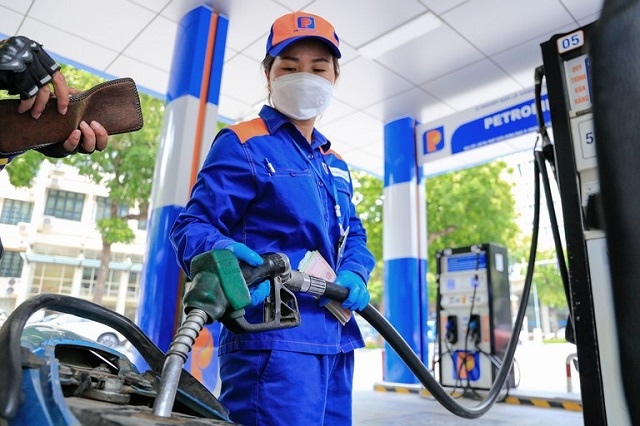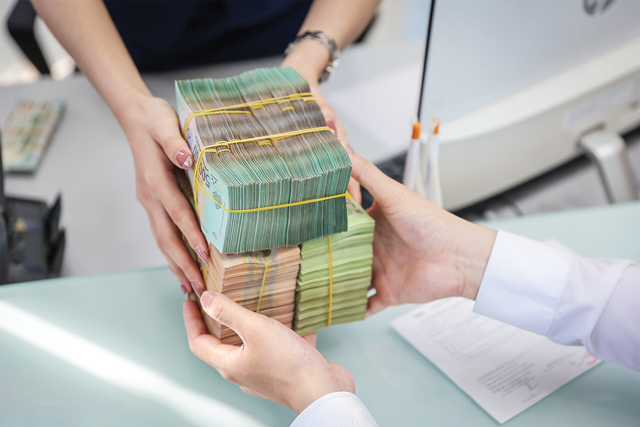Environmental protection tax on gasoline and oil will be reduced by 50%
Accordingly, the price of gasoline, excluding ethanol, is 2,000 VND per liter. Jet fuel, diesel, fuel oil and lubricants are 1,000 VND per liter. The price for grease is one thousand dong per kilogram. Kerosene: 600 VND/liter.
Environmental protection tax (EP) applies to gasoline, oil and lubricants from January 1, 2024 to December 31, 2024.
Section I, Clause 1, Article 1 of Resolution No. 579/2018/UBTVQH14 dated September 26, 2018 of the National Assembly Standing Committee on Environmental Protection Tariff stipulates the environmental protection tax rate starting from January 1, 2025.
This resolution will take effect on January 1, 2024.
The National Assembly assigned the government to supervise the implementation of this Resolution for ministries, ministerial-level agencies, government agencies and localities.

Therefore, the tax reduction policy will be implemented until the end of 2024. According to Resolution No. 579/2018/UBTVQH14 of the UBTVQH, from January 1, 2025, environmental protection tax rates on gasoline, oil and lubricants will as follows: gasoline, except ethanol, is 4,000 VND/liter; Flight fuel is 3,000 VND/liter; Diesel, fuel and lubricants are 2,000 VND/liter; kerosene is 1,000 VND/liter;
Previously, the Ministry of Finance sent a letter to the Prime Minister requesting to prepare the Resolution project documents according to simplified procedures.
To support inflation control and macroeconomic stability, the environmental protection tax rate stipulated in Resolution No. 30/2022/UBTVQH15 in 2024 will stabilize domestic retail gasoline prices.
Because the environmental protection tax is one of the factors that constitute the domestic retail price of gasoline and oil, adjusting the environmental protection tax rate will directly affect the domestic retail price of gasoline and oil.
In case other factors affecting the base price of gasoline and oil do not change compared to the most recent operating period, the retail price of gasoline. Retail prices of gasoline, oil, and lubricants will decrease compared to the environmental protection tax rate specified in Resolution No. 579/2018/UBTVQH14 respectively as follows:
For gasoline (excluding ethanol): the reduced environmental protection tax is 2,000 VND/liter, reducing the retail price of gasoline by 2,200 VND/liter.
For jet fuel, the reduced environmental protection tax is 2,000 VND/liter, reducing the retail price by 2,200 VND/liter, including the VAT reduction.
The retail price of diesel, fuel and lubricants was reduced by 1,100 VND/liter due to the reduced environmental protection tax of 1,000 VND/liter.
For grease, the reduced environmental protection tax is 1,000 VND/kg. This results in a reduction of VND 1,100/kg in the retail price of grease, including the VAT reduction.
For kerosene, the retail price of kerosene (including VAT reduction) decreased by 440 VND/liter due to the reduced environmental protection tax of 400 VND/liter.
The specific reduction in domestic gasoline retail prices will depend on fluctuations in world finished gasoline prices, because domestic gasoline retail prices depend mainly on world finished gasoline prices.
Similar to the reduction of environmental protection tax rates on gasoline, oil, and lubricants from 2022 to 2023, the continued reduction of environmental protection tax rates from 2024 will continue to reduce domestic gasoline and oil prices. Specifically, it helps reduce people's direct costs from consuming gasoline and indirect costs from consuming other products.
At the same time, reducing the environmental protection tax on gasoline, oil and lubricants will help reduce production costs, reduce product prices and increase the ability of companies to recover and expand their businesses, especially large companies. benefit greatly from reduced gasoline prices.
The budget decreased by nearly 43 trillion VND
The Ministry of Finance has calculated that the expected output of gasoline, oil, and lubricants will be equivalent to the expected output in 2024, equivalent to the expected output in 2023. According to this calculation, the environmental protection tax rate is Proposed in Resolution No. 579/2018/UBTVQH14 will decrease by about 38,929 billion VND and total state budget revenue (including VAT reduction) will decrease by about 42,822 billion VND.

Promulgating policies to adjust environmental protection tax rates on gasoline, oil and lubricants not only reduces budget revenue, but also brings many benefits to people's lives and business activities. Therefore, people and the business community have supported and appreciated this policy over the past time.
The Ministry of Finance stated that situations in the world petroleum market are still very complicated, leading to the possibility that gasoline prices may change in the near future, jeopardizing socio-economic stability. association and influence on the domestic market.
From January 1, 2024, if the environmental protection tax rate on gasoline, oil and lubricants increases to the ceiling level, it will affect the psychology and daily life of people as well as the production and business activities of factories. company. Therefore, there needs to be a solution before 2024 to help stabilize gasoline prices and stabilize the macroeconomy.
On the other hand, the application of tools to adjust environmental protection tax rates for gasoline, oil and lubricant products is considered reasonable and effective to support domestic price stabilization. The National Assembly Standing Committee also chose to use this solution to adjust gasoline price developments over time.


